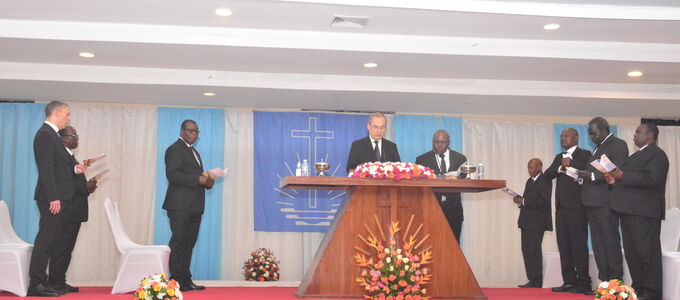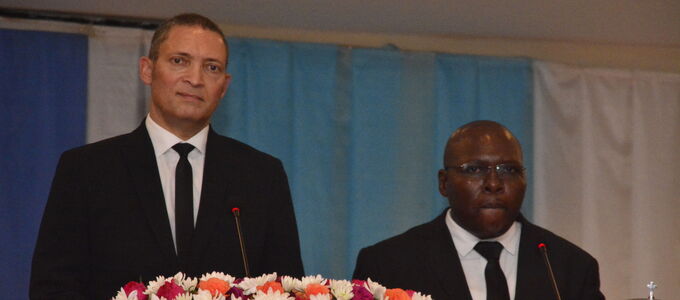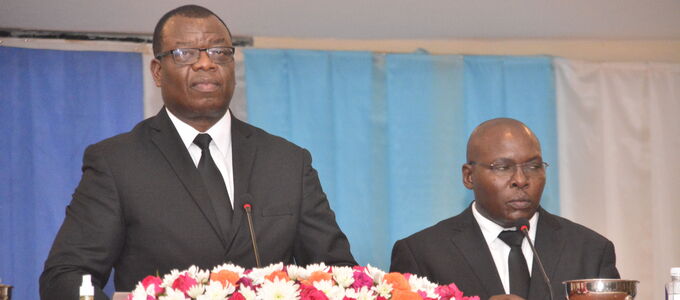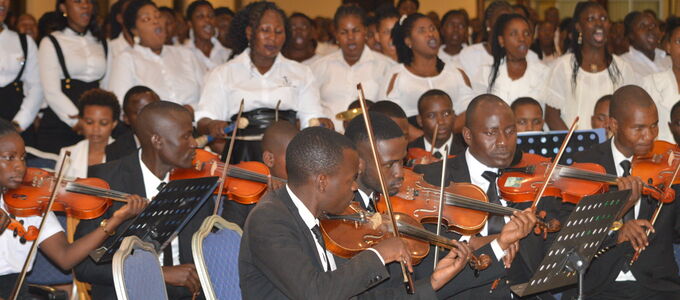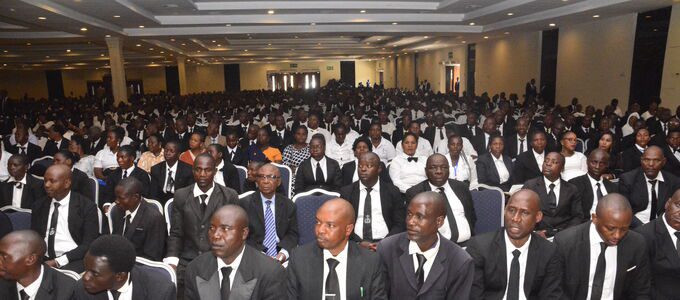
Christianity recognises three kinds of manna: natural bread, bread from heaven, and the bread we all partake of. What they have in common is the way we express our gratitude for them. And this has very little to do with words.
“Then the Lord said to Moses, ‘Behold, I will rain bread from heaven for you. And the people shall go out and gather a certain quota every day, that I may test them, whether they will walk in My law or not.’” This passage from Exodus 16: 4 was the basis of a divine service in Dar es Salaam in Tanzania on 18 August 2024.
Manna: the bread in the desert
The biblical context is as follows. For the Israelites to survive in the desert, God gave them manna and instructed them to take only what they needed for each day. Only on the sixth day of the week were they to collect a double portion. “That was the beginning of the commandment on the sabbath, the day of rest, the Lord’s day,” Chief Apostle Jean-Luc Schneider said.
The people were to give thanks by keeping God’s commandments. But the Israelites grew tired of the manna and longed for the pots of meat they had had in Egypt, ignoring the fact that they had been slaves there.
Food: our daily bread
“This manna given by God is an image for our natural food,” the Chief Apostle explained. “Everything comes from God. He cares for His creation.”
Those who are aware of this are grateful and keep the commandments. This includes: “Do unto your neighbour as you would have them do unto you.” And: “We keep the Sunday, the Lord’s day, and sanctify the day and consecrate it to God.”
“If you commit sin, you can afford many things. And life seems more interesting and exciting, in other words, more palatable.” The Chief Apostle explained that people who live like this are prisoners of sin. Those, however, who do the will of God can be free. “We do not want to go back to slavery,” he said.
Jesus Christ: the bread from heaven
Jesus Christ describes Himself as the “true bread from heaven” and “the bread of life”. That means, “In order to have eternal life, one must accept and believe in Him, Jesus Christ, the son of the living God,” the Chief Apostle explained.
“To receive this bread, you must accept His word and believe in it.” It is not enough to read about it in the Bible, the Chief Apostle said. “We must hear the preaching, which is why we attend the divine services.”
“Let us collect the nourishment in the right manner and trust Jesus and do His will, not someone else’s will,” the Chief Apostle appealed to the congregation. “Do not become a prisoner of sin again!”
Holy Communion: the bread we all partake of
In his first letter to the Corinthians, Apostle Paul speaks of the bread in which all partake: the body and blood of Christ, namely Holy Communion. “We need this to strengthen our fellowship with God, to become like Jesus Christ, and to be ready for His return.”
However, in order to gather this spiritual nourishment, namely Holy Communion, we must keep the rules given by God. The Chief Apostle enumerated these.
- The sacrament unfolds its full effect in connection with the apostolate because Jesus entrusted it to the Apostles.
- The forgiveness of sins is the essential prerequisite for receiving Holy Communion worthily. This implies genuine repentance, a determination to change, and a desire for unity among the faithful.
- It is celebrated in remembrance of Christ. That means we must think about the following questions: What does the resurrection of Jesus mean for me? What consequences do I draw from this for myself?
The Chief Apostle summarised his sermon as follows: “We show God our gratitude for our daily bread by obeying His law. We believe in Jesus Christ, listen to the proclamation of the gospel, and put it into practice. We celebrate Holy Communion regularly and worthily.”






